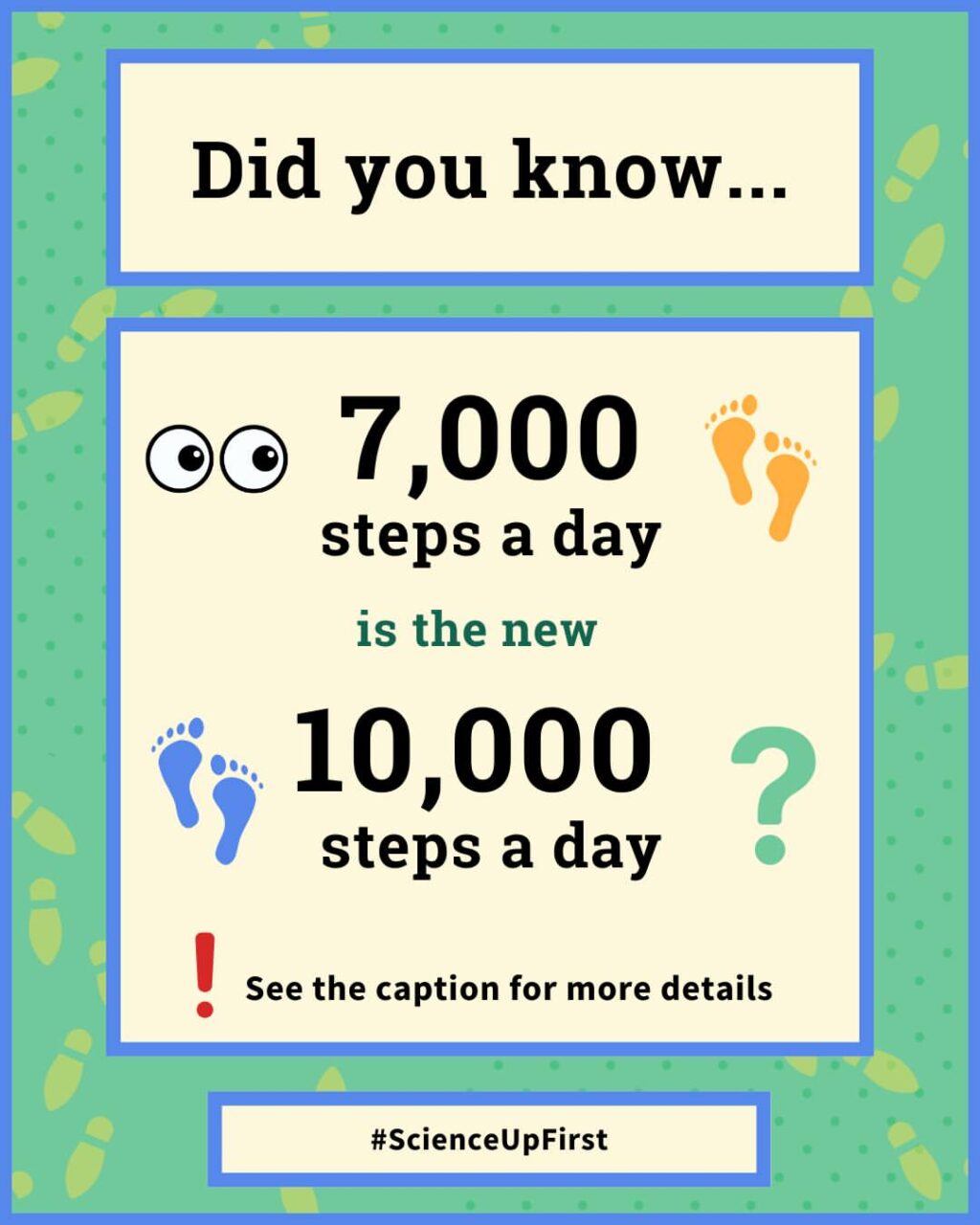
In the 60s, Yamasa, a Japanese company, released the world’s first commercial step counter called manpo-kei, which means “10,000 step meter” in Japanese. But, this round number was not backed up by science and was only chosen as a clever marketing tool (1,2).
So, does walking 10,000 steps a day make us healthier? Yes and no.
Yes, because any physical activity can improve your health and make you live longer (3). Researchers found that older sedentary people lowered their mortality risk by over 45% by increasing their daily step count to 10,000 (1,4). It can also improve your quality of life by reducing your risk of dementia, cancer and cardiovascular disease (5,6).
No, because you might not need 10,000 steps a day to actually get significant health benefits. A study found that walking 7000 to 8000 steps a day actually provided similar benefits to walking 10,000 steps a day (1,7). A more recent meta-analysis (a statistical analysis that combines the results of several studies) suggests that while 10,000 steps can still be a solid goal for people who are already active, 7,000 steps a day is enough to see meaningful health benefits, and might be a more realistic target for many (10).
However, most of these studies looked at older populations and the results might not be applicable to other age groups. Bottom line: more often than not more steps is a good thing. If you think you might be walking less than 5000 steps per day, increasing your daily step by only 1000 could make a big difference on your health (2,8,9). Try taking the stairs, parking farther from the entrance, walking instead of taking a rideshare. You’ll be surprised how fast the steps add up!
But don’t be hard on yourself. Not everyone’s reality is the same. Find movement that feels good to you!
- The science on 10,000 steps a day | Victor Chang Cardiac Research Institute | July 2025
- 10,000 steps a day — or fewer? | Harvard Health | July 2019
- Physical activity | World Health Organization | June 2024
- Objectively Measured Daily Steps and Subsequent Long Term All-Cause Mortality: The Tasped Prospective Cohort Study | PLOS ONE | November 2015
- Association of Daily Step Count and Intensity With Incident Dementia in 78 430 Adults Living in the UK | JAMA Neurology | September 2022
- Walking 10K steps a day is a health sweet spot, study finds — and walking faster is even better | CBC Radio | September 2022
- Association of Step Volume and Intensity With All-Cause Mortality in Older Women | JAMA Internal Medicine | May 2019
- A step-defined sedentary lifestyle index: <5000 steps/day | Canadian Science Publishing | November 2012
- Counting Your Steps | 10,000 Steps | March 2016
- Daily steps and health outcomes in adults: a systematic review and dose-response meta-analysis | The Lancet Public Health | August 2025
Share our original Bluesky Post!
The 10,000 steps goal? It’s more marketing than science. Research shows 7,000 steps a day is enough for major health benefits. Moving matters, but you don’t need to chase 10k to improve your health. Read more 👉 scienceupfirst.com/lifestyle-be… #ScienceUpFirst
— ScienceUpFirst (@scienceupfirst.bsky.social) September 11, 2025 at 2:53 PM
[image or embed]
View our original Instagram Post!




